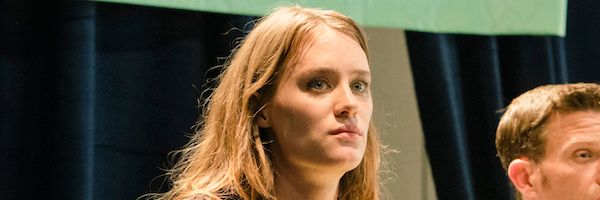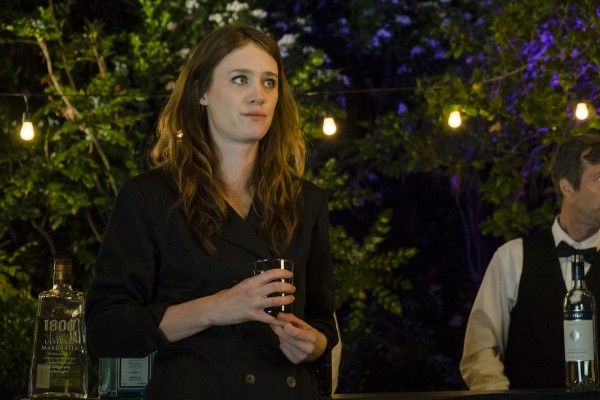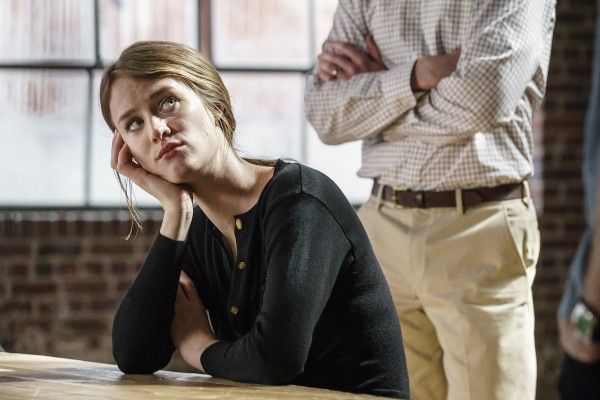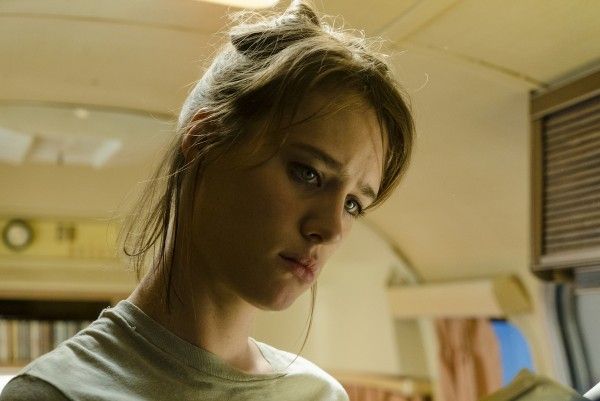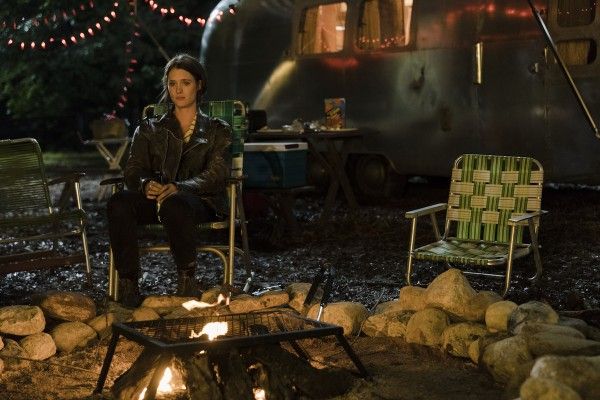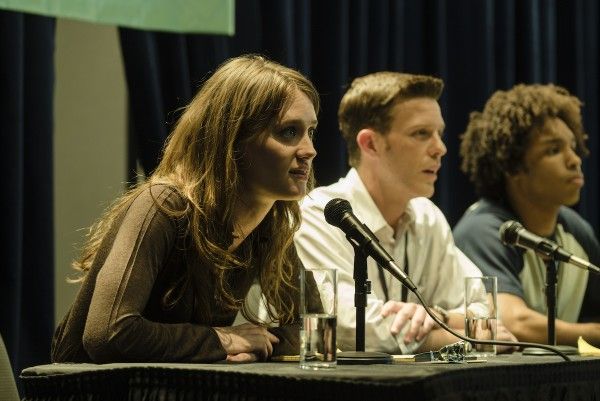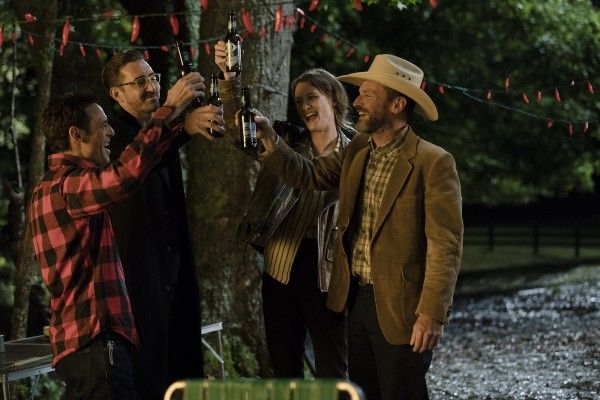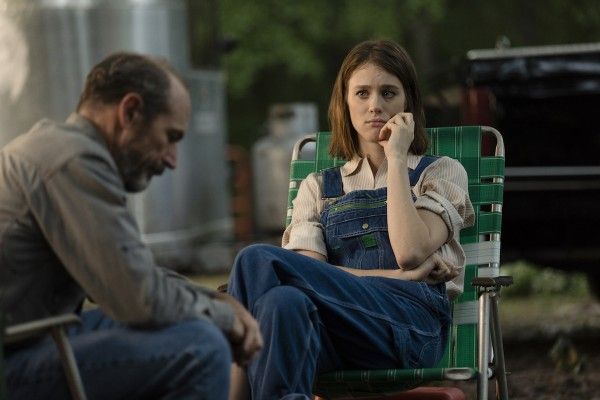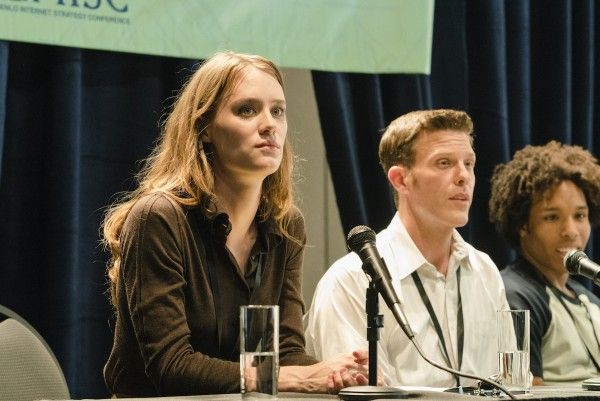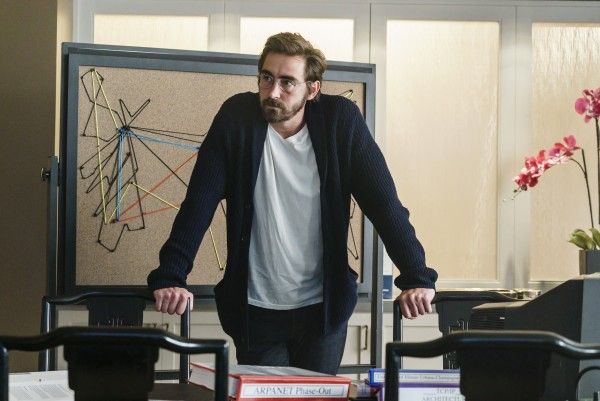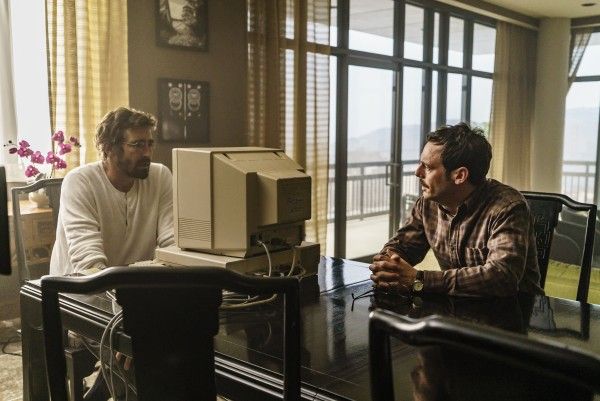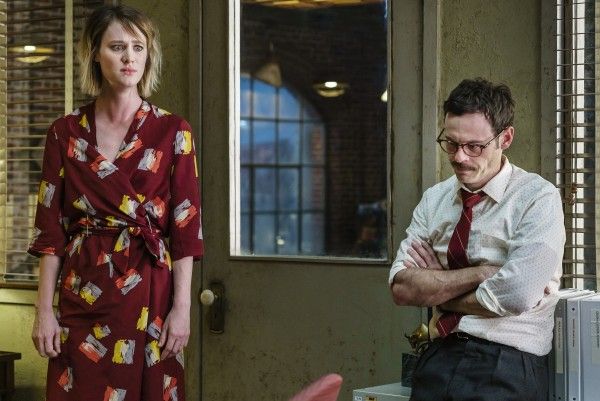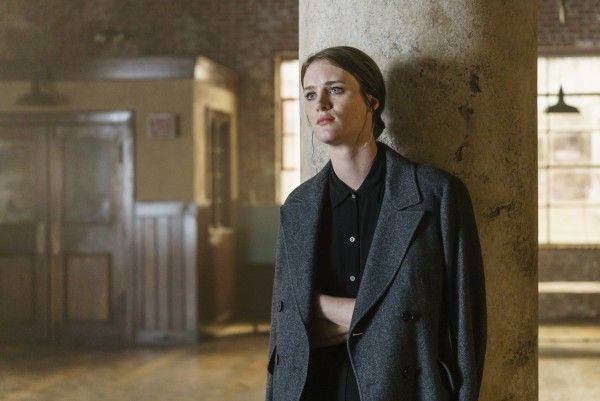One of my favorite shows on any channel is AMC’s Halt and Catch Fire. Over the course of its first three seasons, the fictional drama has followed a dynamic group of characters as they navigate the business and creative decisions that helped mold the rise of the personal computer in the 1980s. With the series’ fourth and final season, the show has entered the 90s and confronted the reality of the World Wide Web.
While the ratings on Halt and Catch Fire have never matched the greatness of the show, creators and showrunners Christopher Cantwell and Christopher C. Rogers have continued to produce an intricate and enveloping world with rich characters. Each year, the AMC series has offered consistently engaging storylines that center on men and women at the forefront of personal computing. They’ve also provided a more convincing and alluring vision of what it was like to live in the era. Indeed, alongside the perceptive writing, the show has always boasted a detailed production design and stylish direction. It’s one of those special shows that will only grow in stature over the course of time. I’m incredibly grateful AMC allowed this special series to run for four years and end on its own terms.
With the final season currently airing on Saturday nights on AMC, I was luckily able to land an exclusive interview with Mackenzie Davis. She talked about if they thought they’d get a fourth season at the end of season three, if she can watch herself on screen, her reaction when she read the series finale script, memorable moments from making the show, and so much more. In addition, she talked about getting to work with Roger Deakins on Denis Villeneuve’s Blade Runner 2049, how they only shot with one camera, and getting to work with Jason Reitman and Diablo Cody on Tully. Check out what she had to say below.
Collider: Over the past few years, you've landed some high profile projects. Do you feel now like you've made it as an actor in Hollywood or do you still feel like you're sneaking around the system?
DAVIS: I think that. I wonder when that goes away. I think the second option; that you think you're sneaking around. I don't know when that goes away. Maybe it doesn't have to go away. I think I've become more ... What's the right word? I think I've become less scared, where I feel more confident in not working and only taking things that I really love then I did in the past. Other than that, you're always like "When are they going to pull the plug on this?"
When you were making Halt Season 3, did you feel like this is it? Or did you really think that you guys had a chance for a fourth season?
DAVIS: Well, we've always thought this is it. There's never been a season where we thought we were going to come back. Which is no comment on the quality or the experience making. It's always been each year better than the last in all regards, in my opinion. I saw something the other day that was like, if you combined every episode of Halt viewer numbers over the past three years, the combined number is a low that the Walking Dead hasn't seen since early Season 3. There were facts that were against us and real logistical things that were not comforting. We had -- especially in the second season, and then going into three so much, and going into four even more -- the sense of support from a small community of people who really dug the show. That's made it feel really worthwhile and special that even if it's not a runway success, that there's people who really care about it.
I've seen the first three episodes of season four and they're fantastic.
DAVIS: I haven't seen any!
Oh, they're good. They're really good.
DAVIS: Oh, cool.
If the Christophers end up sticking the landing with the fourth season, I really think that it's going to be one of those shows that people find over the course of the next few years and binge through, and be like "How did I never watch this when it was on the air?"
DAVIS: Well, they're not invited to come into to the party, that's only original fans.
I'm also convinced that the Christophers have some sort of blackmail on some of the AMC execs, because it doesn't make sense that the show managed to get four years. The ratings honestly, are not fantastic. But, the scripts and the production design, and the stories are so good.
DAVIS: I don't get it, other than there's a huge set of cash cows that dominate our network. That does give you some freedom to take chances on things. Even if that chance isn't met with a huge audience response, when they're another critical passion. People within the network can stick around, I think, for a while. That's the most naïve view of it, just that they loved it and had to keep it around. I'm sure that's not, or I'm just not privy to anything else. So, I choose the nicest version of it.
Absolutely. Also, it could be that one of the heads of the network is just a fan of the show and is saying "Fuck it."
DAVIS: Yeah, that's what I think. They're like, "I just like this show, so what? Who cares if no one watches it?"
I'm forever grateful as a fan of the show. I say thank you everyone at AMC that was involved in giving the show a fourth season and being able to end on your own terms.
DAVIS: Jesus, same.
When the seasons begin, do the Christophers pull you aside and give you an idea of where it's all going? Or do you prefer reading it script by script?
DAVIS: I prefer the former. I'm on a little bit of a time crunch this year, because it was a later pick up and we had a specific spot that we were fitting into. So, normally we don't go into the writer's rooms, [but] at the beginning of the season we have a big conversation and this year, I think it was just because of everybody's whereabouts, dinners. But, we had to do dinners with the Chris's in the Valley. They told me what they were thinking and we got to catch up and start on the same page about the characters in the show, which is so valuable to have that time with them and to sort of go into the season.
Especially in this last season, to sort of be like "I know where I'm going here." I think that life could just surprise us the whole time, cause that's what happens to human beings and you never know what's going to happen. But, I think if somebody's going to kill their coworker in episode two, you kind of need to know that they resent the coworker in episode one.
Sure.
DAVIS: There's a red herring, but yeah. I think it's important and I appreciate it.
I absolutely love the second episode of the fourth season. It's basically a long phone call between you and Lee Pace. That's the type of thing that would never happen nowadays. I vividly remember doing this years ago, because that's how you connected before the internet.
DAVIS: Oh my god, yeah.
What was it like ...
DAVIS: People just hung out together on the phone all the time, it was so ... Sorry to ...
No, I want to touch on that. It's something that I don't think people are going to realize. But, that is the way people connected, was that.
DAVIS: Yeah. Not Facetiming and not finding these other ways, but just sort of walking around your house and pacing around. Having lulls in the conversation, like “what are you doing now?” “Oh, I'm just making some crackers" and then going on with it. I used to do that in college when my best friend moved away. We had a long distance relationship and we would just grocery shop together and talk all day on the phone and non-stop chatting, just so that we could spend time with each other like we would, if we were in the same place.
Absolutely. When you got that script, what was it like reading that on the page and what was it like working and playing that scene?
DAVIS: The Chrises had told me that there would be an episode that was just for Joe and I, our part of the episode, just us talking on the phone all the time. My heart soared at that prospect. Then shooting it was really great, because we had my hotel set and Joe's apartment set were right next to each other. We both just had earphones in, so we were speaking in real time and we didn't have to do coverage of the other person, do the scene a million times. We spoke to each other on the phone in isolated sets for two days and it was so nice to not know what the other person was doing, to not know what, I don't know how they were engaging. If they were still, if they were moving, if they were building a house of cards, anything. You just don't know what the other person's doing. That's real and exciting to be left out of it a little bit. It got to be really in the moment for us.
Did you ask AMC to not show you the episodes before they air? Or, are you planning on watching them with other members of the cast?
DAVIS: I didn't ask them not to show me, I guess I never get sent them. If I asked, I would get them. I just forget to do those sorts of things. I forget what's actually available to do. I know that they're airing on Saturday and I'd really like to watch them. Maybe, I don’t know. I talked to Toby [Huss] about watching them a while ago. Maybe I'll see if he wants to do it.
It is funny to watch it real time, because TV moves so fast that it's something we just did four months ago. It's not that long ago. I dunno, I always feel a little self-conscious, sitting down and curling up with myself.
I have some friends that cannot watch themselves on the screen at all. Are you in that boat? Or, can you watch yourself and still enjoy it?
DAVIS: No, I used to be more like that. I think I've grown to see the value in it, in seeing the completed thing and not find it so horrifying an experience. I think that with movies, when you have some time away from it and then you come back to it, I prefer that rather than "Oh yeah, we shot that this day in ... April." And, you remember every single detail of that day and then you're like "Well, why didn't they use that take?" Or "Why didn't they use ...?" You know what I mean? When you have more distance, you forget the way you thought it was going to go in your mind and you get to see the movie anew, or the show anew. Whereas, if you watch it so soon afterwards, you still remember all the ways that you thought it was going to be and how the story was going to go. It's kind of a bit deflating sometimes.
That makes complete sense. As I said earlier, a lot of shows don't get to end on their own terms. But, you guys do. Did you have any thoughts on what you wanted to see happen to Cameron at the end of the show? Without getting into specifics, does the finale come close to what you secretly wanted?
DAVIS: The finale is different than I thought I wanted and when I read it, it was perfect and exactly as it should be. That's not some diplomatic answer. I thought I knew what should happen for Cameron and it wasn't the finale. As soon as I read the finale, I was just over the moon. It's so beautiful. I think it's really honest and it's satisfying without being corny or leaving you without the end. It's really, I think, so great. I think they did a really beautiful job with it.
I have to ask you. What was it like being given that final script after working so hard on a show for four years? Did you wait to read it? Did you immediately start? What was that like?
DAVIS: We waited to read it. We got it and then we needed to wait four days from when it was available to us to when we could all meet up and read it together. We all read it together for the first time, which was really ... We've never done that before. We've always had our own stuff going into it. But, we all discovered it together. I'm so glad we did that.
I heard a few of you guys on the cast grew extremely close during filming, would drink wine together, talk about your roles. Do you remember how that first started? Do you miss it?
DAVIS: Yeah, it was really miraculous. I remember Lee [Pace] started it, in the first season. We'd be having table reads for each episode, which is important, so that you see the whole scope of the thing. Thematically, you get a sense of the story being told bigger than just your own part. Hearing the words in other actor’s voices is very helpful to see the larger thread sort of thing. When we found out we weren't going to have table reads before each episode, we decided to just meet. Lee suggested a get together at his house, make dinners together, and go through each episode. It started and never stopped and became really so integral to the show. I don't know what the show would be like if we hadn't had done that, because it bonded us all so close.
And, also forced us to push really hard into the text and not get complacent, to treat it with a lot of seriousness and a lot of work and treat it like you do when you're in a theater company. Where you're tackling something as a team. You're not picking out portions of it to work on and then knocking everyone's socks off the next day. You're all invested in the whole shape of the thing, which I think is a really beautiful way to work with people. I've never done another TV show, but maybe that's common. For me, it felt like I had just hit the jackpot.
You did hit the jackpot. I've heard horror stories on shows about certain people not getting along and the fact that you guys were so close, I think that’s also why the show is also so good. Because, everyone was so passionate about their roles and they cared about the characters.
DAVIS: Yeah. I think we all really, really cared a lot. And, I mean I hope that comes through. I think it does. It's an honor to work with people that care so much and don't get complacent. And, don't get bored and, too stable in their position of being a working actor. We really sort of fight for it, I learned so much working on it.
I know, I'm going to run out of time with you so I'm going to jump into a few other things real quick. I am a huge Roger Deakins fan. I mean, I love that man. He's a god.
DAVIS: Same.
One of my best things I've ever done is getting to interview him just as a film fan. I know that everyone's super guarded about Blade Runner 2049. I don't want you to reveal anything. But, I do want to ask you what it was like working with Roger Deakins?
DAVIS: It was incredibly intimidating. He is a master and I felt very aware that if something went wrong, it would've been my fault. Cause, nothing was awry on the camera side of things, which I found very intimidating. But, he's a lovely man and really gentle. And, super precise. It was an unbelievably immersive environment to work on that movie. I think that was a lot of his doing. The sort of atmosphere that you are working in was really dedicated and you felt like you were in a different place when you were on his sets and Denis [Villeneuve], as well. I'm very, very lucky to have that experience.
Well, Denis and Roger told me one of the things that is unusual about the way they shoot is that they shoot with one camera and don't do coverage.
DAVIS: Oh my god. Yeah, that. It's insane.
It’s very unusual for a director to not do coverage, because there's no protection in the editing room. But you look at Roger Deakins’ work and it's so amazing, so sort of talk about that, that there was no coverage, that it's one camera.
DAVIS: Well I mean I think a lot of that goes into a very clear vision between Denis and Roger going into it. I mean covering yourself in the editing room is necessary in some cases, but I think sometimes people can get a little overcautious with it and overshoot things just in case, which I think can sometimes muddy up the experience. So you're like, "Well what's the plan here? We just need to get everything and then you'll figure it out later?" And maybe it's just a different way of working. There's nothing inherently bad in it, I just really loved the feeling of being like, "No, we know exactly what we need. It's been taken care of." It's great faith in who you're working with.
With Roger's track record is I'm sure it's pretty much whatever he says is like, "Okay the Lord has spoken. Let's just do it."
DAVIS: Yeah I think the standard is “don't fuck this up.”
Exactly. How did you get involved in Blade Runner? Did Denis want to meet with you?
DAVIS: I think it was one of the first things I told my agent like 5 years ago when I started working with them was if they ever make a Blade Runner sequel please be on the ready to shout my name at the mountain tops. When word came around that they were doing it, yeah I dunno, pretty much, they heard I was interesting in doing it and I flew out to Montreal, had lunch with him, and then sort of had a long space of nothing and was like, "Well I guess that's that. I'm glad I got to have that nice afternoon in Montreal." And then I had an audition and had another long space of nothing. I was like, "Well at least I got to audition." And then I found out that I got the part, which was so exciting. I remember very clearly the feeling of being extremely full and extremely happy, and having until a few days to shoot.
Did you know exactly what role you were going to play when you got cast? Or was it a little bit of a mystery?
DAVIS: No, I had a general idea, but I didn't really know. I didn't read the script until I got the part offered, and then once I read it I was over the moon. But I was ready to be a dolly grip, I know that’s a very skilled job, the right thing to offer up.
You can admit that you paid to be in the movie, it's fine.
DAVIS: Yeah, I lobbied for it, and I made it in.
I totally want to ask you more about it, but wait until I see the film and you can properly talk about the experience. I'm also a huge fan of Jason Reitman and Diablo Cody, and I know you worked with him on Tully. So same thing, how did that project come to you?
DAVIS: Jason contacted me about it and we've sort of known each other in various ways for a number of years and sort of crossed paths a lot ... And I really like him ... And then he told me about the project and I just loved it and was so honored to be a part of it.
You got to work with Diablo's dialogue and also Charlize [Theron]. What the hell was that like?
DAVIS: Surprisingly not intimidating. She's so lovely and ... It feels stupid to call somebody real when you're expecting something else, but I guess I just thought there would be more of a force field around her and she's just an incredible actress who's there to do the work, and it was exciting. And it felt ... It's funny to say this, but it felt like a job in the best ways. It felt like everybody was serious or something, or there was no bullshit. It was just like everybody was in it because they like doing the work, which is not always the case. It's so nice to be around people who just really like doing the work and figuring out the best way to do something.
If I'm not mistaken, you play a nanny of some kind. I'm just curious, is this one of these scripts where it's very realistic? How would you describe the film to people?
DAVIS: I don't know. I got Jason recently to describe it to me because I'm so bad at describing things I'll just walk through like, "Okay it opens on," and just walk through every part of the movie instead of giving it a distinct and tantalizing description. I think it's about a friendship and I think it's realistic. This is not my skill set.
One of the things about her dialogue is that it is real, and they've worked very well together, Diablo and Jason.
DAVIS: Yeah, very well. And I think she's like a poet. It's so nice working on her stuff. At first, you sort of are delighted and amused and then you're moved. And then the more you work on a dialogue the deeper it gets, which I think is a very rare talent. A lot of depth to her writing.
The other thing is that Jason's a very talented screenwriter, so if anything ever doesn't work I'm imagining he can just do a quick little adjustment and all of a sudden everything is perfect.
DAVIS: Yeah, I mean he is amazing. He's an amazing director. He's the bomb. I think he's a huge and incredible, talented and lovely human being and I really ... Watching him work, I ... He's a much more visual director than I had really realized, and I felt so fortunate to watch him put together the story.
Last question on another subject, but another filmmaker I love is Adam McKay. There are some rumors going around about you maybe doing a movie with him. Any truth to that?
DAVIS: I don't know about that. What rumors?
Have you really not heard anything?
DAVIS: No.
A rumor hit yesterday or today that you were one of the people they were thinking about for the Dick Cheney movie.
DAVIS: Well, I'm delighted to hear about that, but there's no truth about it on my end.
Jumping right back into Halt, looking back on the making of the show, do you have a favorite season or storyline for Cameron or even another character that you really just gravitated towards?
DAVIS: I love this season for Donna. I think it's her season, and Carrie is incredible, which is no news to anybody, but I really like where Donna goes this season. I think she's fascinating and it's a cool four-season long arc from the beginning of the show and I think it's really great. And for me, I really like Season 2. The energy of the show changed so much, it's super chaotic. We had that Mutiny House, that was built on set, but it was just a house that we all were in all the time. As it looked on screen, and super messy, and loud, and there were boys everywhere, and hearts all over the place, and it was just funny ... But it felt really exciting, like it was the same show but it'd been turned on its head and that was really exciting to be a part of. And I liked Cameron's storyline in that season a lot. I liked how she thought she was growing up a lot, but she was really selfish and savage, but it was gross only relative to her. I liked it, I really connected with it.
It has to be, as a viewer, it's also great when you are frustrated with a character because it just means that the writing is good.
DAVIS: Yeah.
Last thing for you, memorable moments from filming ... Is there a day or two from the making of the show that you will always remember and that always sticks in your brain?
DAVIS: The very opening shot of Season 2 that Juan Campanella ... it was a three-minute tracking shot that introduced us to the Mutiny House. I loved that day. I loved putting that shot together. I loved the whole feeling, this whole ballad of it. I've thought about that a lot. And then some early stuff because I was so excited to be there. I just couldn't believe it. The arcade stuff with Lee, sitting in that Mexican restaurant with Scoot [McNairy] and Lee and getting ... I don't know, bargaining and being ... I don't know, it was all really new for me and it was really thrilling. And that has its own emotional place in my heart.
I was going to tell you that the opening shot of Season 4 ... And I'm sure you read it in the script. The time jump is unbelievable the way they shot it and edited it. I think it's my favorite bit of filmmaking on the show.
DAVIS: And Juan did that himself. Yeah, he knows what he's doing. He’s got his hands on things!
He's what we call a talented director and he's very good with -
DAVIS: Ha, industry speak.
Yeah. And he's also good with the oner.
DAVIS: Yeah he knows how to do a oner. Oh that's so cool. Yeah I wasn't there for any of that, so I'm excited to see it.

